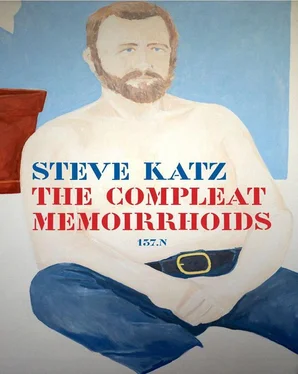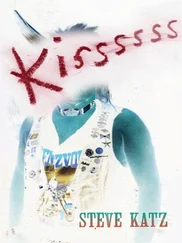He had bought this story from Cannon Films, he explained. What he had in mind only slightly resembled the Cannon property, but he didn’t want any legal difficulties. Leo set this in Nebraska in 1919. A wandering pack of misfits, like an Ur-motorcycle gang, rattles across the prairie. The “gang” encounters a pair of half-breed sisters, the father a native-American shaman, the mother a Swede into Swedish magic. Both parents are recently deceased. The story is about their confrontation and showdown. It seemed hokey to me, very Hollywood, but not without challenge. I didn’t have to decide right away. Leo was headed for Austria to take a sleep-cure. At a certain clinic in the Austrian alps they were prepared to sedate him and keep him asleep for two weeks. They would turn him regularly so he didn’t get bedsores, and would rouse him occasionally to feed him. He would lose weight, he said, and wake up at the end of it full of energy. He’d done it before. I didn’t need to make a decision until he got back.
When he got back, I was blindly swerved into the screenwriting vortex. Despite the sleep treatment, Leo still didn’t seem very comfortable in his skin, couldn’t keep his pants up, stumbled towards you when he talked. First we took rooms at the old Warwick Hotel, on West 54th St. Leo said Rogers and Hart wrote Pal Joey there. He had some romantic showbiz notions. We hammered in tandem on typewriters. We beat a path between our rooms and the Stage Deli. Next we moved to a vacant apartment of an acquaintance of his, high above Park Avenue, where I remembered being at a late night jam session once, with Thad Jones and Sonny Rollins. It felt okay there. Dark-haired women showed up. “The word on the street is that you two have something big going,” said one volunteer. “Hm-mmm,” said Leo.
I hadn’t written a word yet that I believed in. Max Raab, the producer of Walkabout and Lion’s Love , was producing this film. He had an old fisherman’s shack in Harvey Cedars, on Long Beach Island, on the Jersey Shore. His fortune came from Villager Clothes, much of which he lost to the movies. We occupied that shack for a week, typing away in separate rooms. I still couldn’t squeeze out anything I liked. It had become like trying to take a crap through the brain. “Keep everything,” Leo said. “Every little scrap, every page. Don’t throw anything away. There might be something, a phrase like “Make my day.” An image. Don’t lose anything.” A couple of teenage girls showed up off the street, curious, and Leo invited them in. One was blonde, the other dark haired, just like the pair in the script. Leo cajoled them into posing for pictures. He got the blonde to take off her shirt in the sunlight out back. The sheriff was waiting for us when we went back in. These girls were fourteen. Sheriff was not friendly, and asked many questions. Max was his friend, and Max had some clout in the town. The dark girl was the sheriff’s daughter. She promised never to come back. Neither of them would ever come back.
We spent a few days at Milbrook. Leo knew Billy Hitchcock, who had fronted Tim Leary at this estate for several years. It was where, at the height of the acid years, Leo had met China, and married her. It was his only marriage. He made her a character in the script, an icy, gorgeous bike rider. Leo was married to the real China for only a couple weeks before divorce proceedings. The only residue left of the Leary era at Milbrook was a brandy inhaler full of cocaine sitting on the bedside table of my room. We typed fast and furious. I didn’t see anything getting done.
Once we visited an old guy in Hoboken, who was an expert on Vintage motorcycles. He had a complete manual for and expert knowledge of the 1919 Indian, among other bike info. His small parrot hopped around the apartment, landed on the table, and said over and over, “Government bullshit.”
We tried to work at my house in Pine Bush. Jingle said she was afraid of Leo, thought he might do something to the kids. Leo actually enjoyed the kids, got enthusiastic about going to Avrum’s soccer games. He was an orphan, always seemed to be struggling against an undertow of yearning and pain. That made him somewhat sympathetic, though the way he tried to commandeer our house dimmed the sympathies. He had invited a woman he met on the bus to share a pizza with him in our living room, in front of our fireplace. I don’t know how he got her to come, or how he got us to agree to let him cordon off the living room so he could manufacture a romantic interlude. The woman arrived in a bit of confusion about where she was and what she was doing there, and who was Leo Garen, and why had she agreed to this, and who were we, the family in the house? She left very quickly, not a bite of pizza. Leo returned to the city on the next day.
At a certain point the pilgrimage ended, and there was a script, cobbled together somehow. I can’t say I understand how it got done, nor can I identify my contribution. Leo got the movie made on a minimum budget through Max Raab and Twentieth Century Fox. One of his talents was to be such a persistent pain in the ass that people did what he wanted just to get rid of him. Before principal shooting he returned to Austria for two more weeks of sleep cure.
He assembled an interesting cast — Keith Carradine, Scott Glenn, Gary Busey, Bobby Walker Jr., Dan Haggerty, all of whom have had rich careers. A trio of beautiful women, Doria Cook, Hilary Thompson, Cristina Raines, took the female roles, but didn’t continue as well in Hollywood as the men. The film itself I found embarrassing at its initial screening in NY. I watched it again recently, now that its title is Hex , or The Shrieking . It doesn’t seem bad compared to the special effects flash coming out of Hollywood. At least it tells a story. It has a broad, satirical tone. There are some powerful dramatic moments. Leo should have been encouraged to make more films, but he alienated too many people. Max Raab couldn’t bear him after the Grassland experience. I would have written another film with him if the opportunity came up, and the money was right. It didn’t happen. Fox took the rights to the film away from Leo, and after that he decided he didn’t care about any of it, would work only for the money, got little work. He became a fanatical sailor, and a melancholy hunter of random pussy, as he tacked away across the wind.
Suketu Mehta’s powerful book, Maximum City , exposes much of the street life, the gangs, Bollywood, connections to Dubai, and the workings of the economic and civic forces in Mumbai. It changed my understanding of what had been my brief mysterious brush with the city. Bombay mysteries happened to me though I never left the airport. I had arrived from New York with three hours to make the connection for New Delhi. I was going to meet my friends there. The timing was critical. In India, I found out, that’s a non-sequitur. I was in efficient traveling mode, ready to hit the transfer lounge, grab my boarding pass, head for the gate, and perhaps have time to call an old student of mine from Colorado, who had returned to her native Bombay. She would be surprised to hear from me. I turned a corner and hopped in to the transfer lounge, and suddenly I was in India. I had transferred from the light, swift medium of air travel, into a thick molasses of slow down and wait. I suddenly landed as a fly lands on flypaper onto a lethargy deeply embedded in the space. Only later Mehta’s understanding helped me figure out how much more complicated and profound this was than simple lethargy. He calls Mumbai (which he doesn’t hesitate to call Bombay) the city of “no”. I bypassed the line of people and went right to the desk. The uniformed employees swayed like seaweed in the glow of their computer monitors.
Читать дальше












